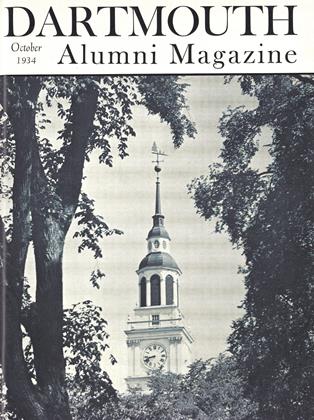By Harold Blodgett. Cornell Studies in English. Cornell University Press, Ithaca, New York.
It is, of course, no news to Americans that we took Walt Whitman largely on the rebound from England. Yet to believe that Whitman basked in the warm-hearted and eager approval of the great English reading public at a time when the masses of his fellow countrymen at home were still in ignorance of his very name is to misunderstand the way in which great reading publics respond to fresh and original genius. As Mr. Blodgett points out at the conclusion of his excellent study, "so far as the sentiment of the great reading public was concerned, Whitman during his lifetime did not make marked progress in either country."
What England did do for Whitman during his lifetime was to give him more space in the reviews than he got at home (there was none of that half ludicrous, half pathetic writing of his own notices) and more competent criticism (by no means all blindly favorable) from better critics. The Whitman that the England of his time was particularly ripe for was Whitman the moralist and prophet. And it was as moralist and prophet rather than as artist that England was inclined to accept him. England gave him, above all else, the respectful attention, amounting in certain familiar cases to the enthusiastic discipleship, of a number of unusual men, some of whom were already enrolled among the immortals.
Mr. Blodgett has made a careful study of the different responses made to Whitman by the more significant of these Englishmen. Dealing primarily with a variety of figures and a mass of opinion, opinion that in some cases changed overnight, Mr. Blodgett has risen above his material to a rather unusual degree. He has contrived to give a good deal of the flow of the social and intellectual currents of the time and he conveys a striking impression of the multitudinous comings and goings, of letters, visitors, and messages, affecting the house in Camden. There are particularly good chapters on John Addington Symonds, Robert Buchanan, and the ebullient Anne Gilchrist. Mr. Blodgett has a taste for personality which one wishes the nature of his work had given him more scope for. Walt Whitman in England is a distinct and valuable addition to the works about Whitman.
 View Full Issue
View Full Issue
More From This Issue
-
 Article
ArticlePREREQUISITES OF INTELLIGENCE
October 1934 By Ernest Martin Hopkins '01 -
 Class Notes
Class NotesClass of 1911
October 1934 By Prof. Nathaniel G. Burleigh -
 Article
ArticleHANOVER BROWSING
October 1934 By Herbert F. West '22 -
 Class Notes
Class NotesClass of 1913
October 1934 By Warde Wilkins -
 Class Notes
Class NotesClass of 1910
October 1934 By Harold P. Hinman -
 Class Notes
Class NotesClass of 1934
October 1934 By Martin J. Swyer, Jr.
Kenneth A. Robinson
-
 Article
ArticleMAY 3, 1923
June, 1923 By Frank L. Janeway, Francis J. Neef, William K. Wright, 3 more ... -
 Books
BooksFACULTY PUBLICATIONS
DECEMBER 1926 By Kenneth A. Robinson -
 Books
BooksTHE TELEPHONE BOOTH INDIAN
May 1942 By Kenneth A. Robinson -
 Books
BooksFINGERBOARD
April 1950 By KENNETH A. ROBINSON -
 Books
BooksTABARD
October 1951 By Kenneth A. Robinson -
 Books
BooksWALT WHITMAN RECONSIDERED.
December 1955 By KENNETH A. ROBINSON
Books
-
 Books
BooksTHE FLEET TODAY
February 1941 By A. L. DEMAREE. -
 Books
BooksA HISTORY OF LUMBERING IN MAINE, 1820-1861.
December 1935 By Allen R. Foley '20 -
 Books
BooksGREEK THOUGHT IN THE NEW TESTAMENT.
AUGUST, 1928 By Charles D. Adams -
 Books
BooksMore and Merrier
April 1980 By Chas Carner '74 -
 Books
BooksTO THE GREAT OCEAN.
FEBRUARY 1966 By JOHN C. ADAMS -
 Books
BooksOPUS POSTHUMOUS: POEMS, PLAYS PROSE.
January 1958 By JOHN L. STEWART

